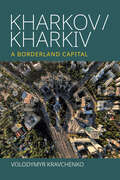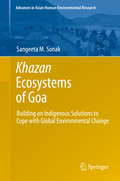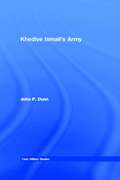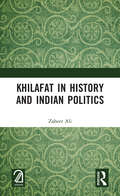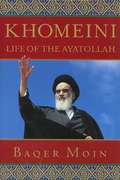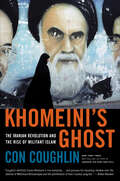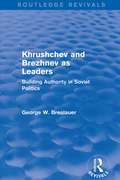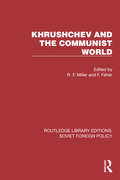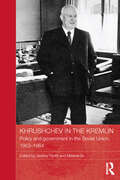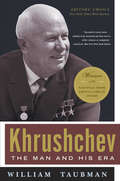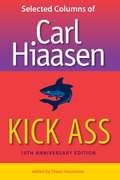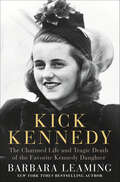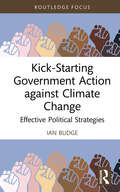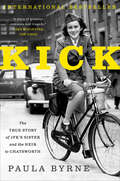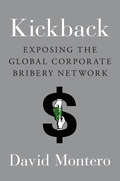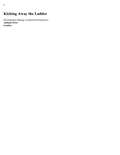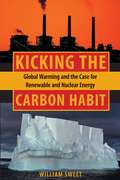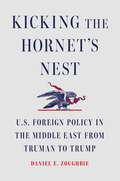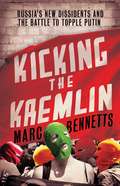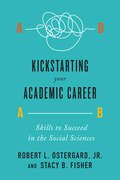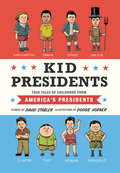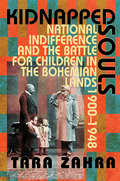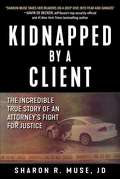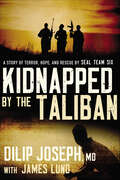- Table View
- List View
Kharkov/Kharkiv: A Borderland Capital
by Volodymyr KravchenkoKharkiv is Ukraine’s second largest city and its former capital. Situated within 40 km of the Ukrainian-Russian border it is one of those East-Central European “liminal” cities which became a center of modernization and pluralization in the borderland area, playing a prominent role in the process of nation building. Volodymyr Kravchenko’s expanded edition of Kharkov/Kharkiv, now in the English-language and including a new chapter on the reconfiguration of the Ukrainian-Russian borderland during and after the watershed Euromaidan event, uniquely uncovers the city’s long history, from the 17th century to today. Addressing issues of regional and national identities, Ukrainian-Russian relations, mental mapping, historical narratives and the ensuing de/reconstruction of national mythologies, this book, fills a unique gap in the literature on Kharkiv.
Khazan Ecosystems of Goa
by Sangeeta M. SonakThis book elaborates on the Khazan ecosystems of Goa, India. Khazans are human-managed ecosystems, which are reclaimed from coastal wetlands, salt marshes and mangrove areas, where tidal influence is regulated through a highly structured system of dykes, canals, furrows, and sluice gates using resources that are amply available locally. Khazan ecosystems are marvels of tribal engineering. They are a simple architectural design, which operate at a very low running cost using tidal, hydro, and solar energy. The design contributes to a highly complex but eco-friendly ecosystem integrating agriculture, aquaculture and salt panning. . Khazan ecosystems have been functional for the last 3500 years. The history of Khazans is very ancient and can be traced to the transition from food gathering to food growing, which has been regarded as the biggest step in the history of human civilization. Khazan ecosystems thus have a high historical and world heritage value. They are also repositories of global biodiversity, with unique flora suitable to their unique and highly variable environment. They are endemic and heritage ecosystems of Goa and ultimately reservoirs of history and heritage. Using the example of the Khazan lands, the book analyzes and comments on traditional ecological knowledge and indigenous technology. It presents the evolution of Khazan management institutions over a period of more than three thousand years, as well as factors that have contributed to its decline in recent years It develops a conceptual framework for ecosystem performance and suggests strategies for conservation of Khazans as well as strategies to build on these indigenous adaptation mechanisms to cope with the global environmental change.
Khedive Ismail's Army (Cass Military Studies)
by John P. DunnKhedive Ismail's Army examines military failure in the age of imperialism. On paper, the mid-nineteenth century Egyptian army seems a formidable regional power. It had a tradition of success, modern weapons, and mercenary officers with experience in major wars. Egypt's ruler, Khedive Ismail, hoped to combine the imported technology and brains with native manpower, and establish an Egyptian dominated Horn of Africa. His soldiers did conquer parts of the Sudan, but they suffered disastrous defeats during the Egyptian Abyssinian War of 1875 to 1876.Presenting the first detailed examination of the Egyptian Abyssinian War in English, this new book also looks at the root problems that made Ismail's soldiers ineffective. These include issues of class, racism, internal, and external politics, finance, and the rapidly changing world of mid-Nineteenth Century military technology. This book is aimed at military historians, and will be of interest to those studying the Middle East or North East Africa.
Khilafat in History and Indian Politics
by Zaheer AliThis book is a brief historical account of Khilafat, an Islamic political institution mired in controversies from its inception. It is an attempt to present an objective critique of the Islamic polity that, in a way, was primarily responsible for crafting schisms in Islam with its commencement. By the time the last Khilafat of the Ottomans came to an end in the aftershock of the Second World War, the Muslim political elite in India launched a movement for the restoration and continuation of the Ottoman Khilafat. The most paradoxical dimension of the issue was that in the Arab peninsula, the epicenter of Islam, the people were struggling to cast away the yoke of the Ottoman Khilafat, then why were the Indian Muslims emotionally involved in a movement that was vehemently condemned and assailed by a majority of Muslims outside the Indian subcontinent? This title is co-published with Aakar Books. Print editions not for sale in South Asia (India, Sri Lanka, Nepal, Bangladesh, Pakistan and Bhutan)
Khirbet Khizeh: A Novel
by Nicholas De Lange David Shulman S. YizharIt's 1948 and the Arab villagers of Khirbet Khizeh are about to be violently expelled from their homes. A young Israeli soldier who is on duty that day finds himself battling on two fronts: with the villagers and, ultimately, with his own conscience. Published just months after the founding of the state of Israel and the end of the 1948 war, the novella Khirbet Khizeh was an immediate sensation when it first appeared. Since then, the book has continued to challenge and disturb, even finding its way onto the school curriculum in Israel. The various debates it has prompted would themselves make Khirbet Khizeh worth reading, but the novella is much more than a vital historical document: it is also a great work of art. Yizhar's haunting, lyrical style and charged view of the landscape are in many ways as startling as his wrenchingly honest view of modern Israel's primal scene. Considered a modern Hebrew masterpiece, Khirbet Khizeh is an extraordinary and heartbreaking book that is destined to be a classic of world literature.
Khomeini
by Baqer MoinThe Ayatollah Khomeini was the most radical Muslim leader of this age. In transforming himself from a traditional Muslim theologian into the charismatic Iranian ruler who took on the world, Khomeini launched an Islamic revival movement that, with the collapse of communism, quickly evolved for some as the centre-piece in the pantheon of western demonology, and for others as the inspiration for spiritual and political rebirth. Whether viewed as a hero by his supporters or as a villain by his enemies, Khomeini was undoubtedly one of the seminal figures of the twentieth century, whose influence will extend some way into the new millennium. Baqer Moin here explores how and why this frail octogenarian, dressed in the traditional robes of a Muslim cleric, overthrew the secular Shah of Iran and became the spiritual leader of a new and militant Islamic regime. Still an enigma in the West, Khomeini transformed the Middle East and the world. But where did the man come from? What was his childhood and family background? What lay behind his implacable opposition to the Shah? What role did the turbulent events in Iran during his youth play in shaping Khomeini's political perceptions? What changed him from an obscure traditional theologian with mystical and poetic inclinations into a combative and highly vengeful radical? How will his vision of an international community of Muslims, a kind of Islamic Internationale, affect the Middle East?Drawing on many exclusive personal interviews with Khomeini's associates, on unpublished new materials and on the author's firsthand experience in Islamic seminaries, this biography provides a fascinating, well-documented and highly accessible analysis of the life and thought of one of the most controversial leaders of the late twentieth century.
Khomeini's Ghost: The Iranian Revolution and the Rise of Militant Islam
by Con CoughlinFrom the bestselling author of Saddam comes the definitive biography of Ayatollah Khomeini's Islamic revolution and how his fundamentalist legacy has forever influenced the course of Iran's relationship with the West. In February 1979, Ayatollah Ruhollah Khomeini returned to Tehran after nearly fifteen years in exile and received a hero's welcome. Just as the new world order sought to purge the communist ideologies of the Cold War, the religious doctrine of Islamic fundamentalism emerged to pose an even greater threat to post–Iron Curtain stability—and Khomeini would mastermind it into a revolution.Khomeini's Ghost is the account of how an impoverished young student from a remote area of southern Iran became the leader of one of the most dramatic upheavals of the modern age, and how his radical Islamic philosophy now lies at the heart of the modern-day conflict between Iran and the West. Con Coughlin draws on a wide variety of Iranian sources, including religious figures who knew and worked with Khomeini both in exile and in power.Both compelling and timely, Khomeini's Ghost is essential reading for anyone wishing to understand what lies at the center of many of the world's most intractable conflicts.
Khrushchev and Brezhnev as Leaders (Routledge Revivals): Building Authority in Soviet Politics
by George W. BreslauerFirst published in 1982, this book explores how Khrushchev and Brezhnev manipulated their policies and personal images as they attempted to consolidate their authority as leader. Central issues of Soviet domestic politics are examined: investment priorities, incentive policy, administrative reform, and political participation. The author rejects the conventional images of Khrushchev as an embattled consumer advocate and decentraliser, and of Brezhnev’s leadership as dull and conservative. He looks at how they dealt with the task of devising programs that combined the post-Stalin elite’s goals of consumer satisfaction and expanded political participation with traditional Soviet values.
Khrushchev and the Communist World (Routledge Library Editions: Soviet Foreign Policy #8)
by F. FehérKhrushchev and the Communist World, first published in 1984, reviews the Khrushchev era, when the legacy of the Stalinist past was partly repudiated and the possibilities of reform within the USSR and the countries of the socialist camp were explored. The lessons derived from this exploration by Bloc leaders and Khrushchev’s successors unhappily led them to conclude that the scope for such reform was extremely limited. Many of Khrushchev’s reforms and reorganisation measures were indeed rescinded, but the notion had been planted that the naked terror of Stalinist rule and direct, centralised command over other socialist states were no longer feasible. This book reviews the evidence for this view both in internal terms and also in foreign affairs.
Khrushchev in the Kremlin: Policy and Government in the Soviet Union, 1953–64 (BASEES/Routledge Series on Russian and East European Studies)
by Jeremy SmithThis book presents a new picture of the politics, economics and process of government in the Soviet Union under the leadership of Nikita Khrushchev. Based in large part on original research in recently declassified archive collections, the book examines the full complexity of government, including formal and informal political relationships; economic reforms and nationality relations in the national republics of the USSR; the treatment of political dissent; economic progress through technological innovation; relations with the Eastern bloc; corruption and deceit in the economy; and the reform of the railways and construction sectors. The book re-evaluates the Khrushchev era as one which represented a significant departure from the Stalin years, introducing a number of policy changes that only came to fruition later, whilst still suffering from many of the limitations imposed by the Stalinist system. Unlike many other studies which consider the subject from the perspective of the Cold War and superpower relations, this book provides an overview of the internal development of the Soviet Union in this period, locating it in the broader context of Soviet history. This is the companion volume to the Jeremy Smith and Melanie Ilic’s previous edited collection, Soviet State and Society under Nikita Khrushchev (Routledge, 2009).
Khrushchev: The Man And His Era
by William TaubmanThe definitive biography of the mercurial Soviet leader who succeeded and denounced Stalin. Nikita Khrushchev was one of the most complex and important political figures of the twentieth century. Ruler of the Soviet Union during the first decade after Stalin's death, Khrushchev left a contradictory stamp on his country and on the world. His life and career mirror the Soviet experience: revolution, civil war, famine, collectivization, industrialization, terror, world war, cold war, Stalinism, post-Stalinism. Complicit in terrible Stalinist crimes, Khrushchev nevertheless retained his humanity: his daring attempt to reform communism prepared the ground for its eventual collapse; and his awkward efforts to ease the cold war triggered its most dangerous crises.<P><P> This is the first comprehensive biography of Khrushchev and the first of any Soviet leader to reflect the full range of sources that have become available since the USSR collapsed. Combining a page-turning historical narrative with penetrating political and psychological analysis, this book brims with the life and excitement of a man whose story personified his era.<P> Pulitzer Prize Winner
Kick Ass: Selected Columns of Carl Hiaasen
by Carl Hiaasen Diane StevensonIn the words of Carl Hiaasen, "You just cover a lot of territory and you do it aggressively and you do it fairly and you don't play favorite sand you don't take any prisoners. It's the old school of slash-and-burn metropolitan column writing. You just kick ass. That's what you do. And that's what they pay you to do."
Kick Kennedy: The Charmed Life and Tragic Death of the Favorite Kennedy Daughter
by Barbara LeamingKathleen “Kick” Kennedy was the incandescent life-force of the fabled Kennedy family, her father’s acknowledged “favorite of all the children” and her brother Jack’s “psychological twin.” She was the Kennedy of Kennedys, sure of her privilege, magnetically charming and somehow not quite like anyone else on whatever stage she happened to grace. The daughter of the American ambassador to the Court of St James’s, Kick swept into Britain’s aristocracy like a fresh wind on a sweltering summer day. In a decaying world where everything was based on stultifying sameness and similarity, she was gloriously, exhilaratingly different. Kick was the girl whom all the boys fell in love with, the girl who remained painfully out of reach for most of them. To Kick, everything about this life was fun and amusing—until suddenly it was not. For this is also a story of how a girl like Kick, a girl who had everything, a girl who seemed made for happiness, confronted crushing sadness. Willing to pay the price for choosing the love she wanted, she would have to face the consequences of forsaking much that was dear to her. Bestselling and award-winning biographer Barbara Leaming draws on her unique access to firsthand accounts, extensive conversations with many of the key players, and previously-unseen sources to transport us to another world, one of immense wealth, arcane rituals and rules, glamour and tragedy, that has now disappeared forever. It was a world of dukes and duchesses, of grand houses, of country house weekends, and of wild rich boys. But it was also a world of blood and war, and of immeasurable loss. It was a time of complete upheaval, as reflected in the life of this most unlikely and unforgettable central character. Kick Kennedy reveals her story, that of a young girl learning about love, sex, and death—and doing it all at warp speed as the world races toward war and then reels in the war’s chaotic aftermath. This is the coming-of-age story of the female star of the Kennedy family, and ultimately a tragic, romantic story that will break your heart.
Kick-Starting Government Action against Climate Change: Effective Political Strategies (Routledge Advances in Climate Change Research)
by Ian BudgeWith drastic action needing to be taken now, rather than over the 30 years to 2050, this book addresses the crucial question of how to get action from governments who will always put short-term considerations (e.g. post Covid economic growth) over longer term climate priorities – unless forced to do otherwise. How might governments be persuaded to implement policies that will result in effective action? And how can this be achieved at an international, as well as national, level? These are the questions that this book focuses on. Taking a systematic political science point of view and drawing on collective choice and other theories of political action, this book analyses the key political and economic dynamics shaping climate policies around the world, identifying major political opportunities that can be exploited by well-informed and determined political actors, such as NGOs and social movements. This book describes how to advance and accelerate climate action around the world and will be of interest internationally to climate change campaigners, activists, political and environmental scientists.
Kick: The True Story of JFK's Sister and the Heir to Chatsworth
by Paula ByrneThe acclaimed biography of the unconventional, nearly forgotten Kennedy sister who charmed the world and broke with her family for love.Rose and Joe Kennedy’s children were the embodiment of ambitious, wholesome Americanism. Yet even within this group of overachievers, the irrepressible Kathleen stood out. Lively, charismatic, and blessed with graceful athleticism, the alluring socialite known as Kick effortlessly made friends and stole hearts.When her father became ambassador to Great Britain in 1938, Kick charmed the nation with her unconventional attitude and easygoing humor. She would also shock and alienate her devout family by marrying the scion of a virulently anti-Catholic family— William Cavendish, the heir apparent of the Duke of Devonshire and Chatsworth. But the marriage would last only a few months; Billy was killed in combat in 1944, just four years before Kick’s own unexpected death in an airplane crash at twenty-eight.Paula Byrne recounts this remarkable young woman’s life as never before, from her work at the Washington Times-Herald to her volunteering with the Red Cross in wartime England; and from her deep love of politics to her decision to renounce her faith for the man she loved. Sympathetic and compelling, Kick shines a spotlight on this feisty and unique Kennedy long relegated to the shadows of her legendary family’s history.
Kickback: Exposing the Global Corporate Bribery Network
by David MonteroAn investigation into corporate bribery around the world and how it undermines democracy and the free market systemThe World Bank estimates that rich multinational corporations pay hundreds of billions of dollars in bribes every year to officials overseas. The perpetrators are not a handful of rogue companies, but many members of the Fortune 500. Kickback is a sweeping, global investigation into corporate bribery around the world and how backdoor financial transactions undermine democracy and the free market system by lining the pockets of some of the world's worst dictators and criminals. Ultimately, this system affects billions of people by creating conditions that lead to poverty, violence, environmental disaster, and political instability in countries like Nigeria, Bahrain, Costa Rica, and Iraq.Kickback traces the origins of corporate bribery from the reign of the British East India Company to the methods by which it is carried out today. Traveling across four continents and interviewing police and intelligence officials, convicted criminals, business executives, and corruption experts, David Montero takes an inside look at bribery's pernicious effects. He examines its ramifications at both the individual and national levels--from the murder of a young activist in Bangladesh to a Texas billionaire's dealings with Saddam Hussein, from pharmaceutical firms' payoffs in China to how the entrenched culture of bribery helped destroy the Greek economy. Montero also examines the countermeasures that have been introduced to combat these practices, such as the Justice Department's efforts to halt them and attempts to identify and provide restitution to victims.Given the new era of profound uncertainty we are entering--the strength of the European Union founders, the power of China rises, the global economy continues on a path of perilous flux, and allegations mount that President Donald Trump and his associates are possibly tainted by bribery themselves--the stakes for eradicating corporate bribery have never been higher.
Kicking Away The Ladder: Development Strategy In Historical Perspective
by Ha-Joon ChangHow did the rich countries really become rich? In this provocative study, Ha-Joon Chang examines the great pressure on developing countries from the developed world to adopt certain 'good policies' and 'good institutions', seen today as necessary for economic development. His conclusions are compelling and disturbing: that developed countries are attempting to 'kick away the ladder' with which they have climbed to the top, thereby preventing developing countries from adopting policies and institutions that they themselves have used.
Kicking the Carbon Habit: Global Warming and the Case for Renewable and Nuclear Energy
by William SweetWith glaciers melting, oceans growing more acidic, species dying out, and catastrophic events like Hurricane Katrina ever more probable, strong steps must be taken now to slow global warming. Further warming threatens entire regional economies and the well being of whole populations, and in this century alone, it could create a global cataclysm. Synthesizing information from leading scientists and the most up-to-date research, science journalist William Sweet examines what the United States can do to help prevent climate devastation.Rather than focusing on cutting oil consumption, which Sweet argues is expensive and unrealistic, the United States should concentrate on drastically reducing its use of coal. Coal-fired plants, which currently produce more than half of the electricity in the United States, account for two fifths of the country's greenhouse gas emissions of carbon dioxide into the atmosphere. Sweet believes a mixture of more environmentally sound technologies-wind turbines, natural gas, and nuclear reactors-can effectively replace coal plants, especially since dramatic improvements in technology have made nuclear power cleaner, safer, and more efficient.Sweet cuts through all the confusion and controversies. He explores dramatic advances made by climate scientists over the past twenty years and addresses the various political and economic issues associated with global warming, including the practicality of reducing emissions from automobiles, the efficacy of taxing energy consumption, and the responsibility of the United States to its citizens and the international community to reduce greenhouse gases. Timely and provocative, Kicking the Carbon Habit is essential reading for anyone interested in environmental science, economics, and the future of the planet.
Kicking the Hornet's Nest: U.S. Foreign Policy in the Middle East from Truman to Trump
by Daniel E ZoughbieThe compelling, groundbreaking investigation of how the choices of twelve US presidents, from Truman to Trump, have fueled turbulence and turmoil in the Middle East. And the one president who chose a better way.Kicking the Hornet&’s Nest is a riveting exploration of how twelve US presidents have shaped the Middle East, often unleashing instability and conflict along the way. It is also the story of one US president who successfully charted a better course. From Truman to Trump, Daniel Zoughbie meticulously unpacks the decisions that have set the stage for today&’s unrest. But this book is more than just a history lesson; it&’s a sharp analysis of presidential decision-making and its far-reaching consequences. Today, the Middle East stands as a volatile landscape, more tumultuous than at any time since the fall of the Ottoman Empire. Zoughbie paints a vivid picture of how nearly every major nation-state in the Middle East and North Africa has grappled with existential crises in the recent years, paving the way for terrorist groups to threaten national sovereignty and for local conflicts to destabilize world order. Drawing on a vast array of primary sources and interviews with world leaders, the narrative explores pressing issues like nuclear proliferation, genocide, and nationalist conflicts fueled by sectarian fervor that have triggered global refugee waves. Kicking the Hornet&’s Nest is an eye-opening study of US presidential decision-making and foreign policy. With compassion and insight, Zoughbie reveals the essential information necessary for anyone seeking to understand eight decades of US foreign policy and its profound impact on billions of lives worldwide.
Kicking the Kremlin: Russia’s New Dissidents and the Battle to Topple Putin
by Marc BennettsAs 2011 came to a close, in what was a watershed moment, 100,000 took to Moscow's freezing streets to protest the election victory of United Russia - Vladimir Putin's party - amid widespread allegations of corruption and vote-rigging. A few months later, Pussy Riot hit headlines around the world when they were arrested following their anti-Putin demonstration in a Russian Orthodox cathedral. The vicious battle for Russia's soul continues to this day.In the first book to take the reader straight to the beating heart of the opposition movement, journalist and long-time Moscow resident Marc Bennetts introduces a new generation of Russian dissidents, united by their hatred of Putin and his bid to silence all political adversaries. We meet a bustling cast of urban youth working to expose the injustices of the regime and a disjointed bunch of dissenters - from 'It Girl' hipsters to 21st-century socialists. Featuring rare interviews with everyone from Pussy Riot and top protest leaders to Kremlin insiders, Bennetts' compelling narrative is a high-octane account of the politics and subterfuge of modern-day Russia.
Kickstarting Your Academic Career: Skills To Succeed In The Social Sciences
by Robert L. Ostergard Jr. Stacy B. FisherKickstarting Your Academic Career is a primer on the common scholastic demands that social sciences students face upon entering college or university. Based on the challenges that instructors most often find students need help with, the authors offer practical advice and tips on topics such as how to communicate with instructors, take notes, read a textbook, research and write papers, and write successful exams. The succinct writing and clear organization make this an essential reference for first-year students as they encounter post-secondary work for the first time, and a useful refresher for upper-year students looking to refine their skills.
Kid Presidents: True Tales of Childhood from America's Presidents (Kid Legends #1)
by Doogie Horner David StablerThe kids who grew up to be president were like a lot of other children. Some struggled with schoolwork and got into fights; others pranked their teachers and infuriated their parents. William Howard Taft was forced to take dance lessons. Gerald Ford struggled with dyslexia. Teddy Roosevelt had a bedroom "museum" full of dead animals. Kid Presidents features 20 captivating true stories from the childhoods of American presidents, complete with lively text and more than 200 cartoon illustrations. Laugh-out-loud funny and packed with cool facts, it's the perfect read for all young future leaders of the free world.
Kidnapped Souls: National Indifference and the Battle for Children in the Bohemian Lands, 1900–1948
by Tara ZahraThroughout the nineteenth and into the early decades of the twentieth century, it was common for rural and working-class parents in the Czech-German borderlands to ensure that their children were bilingual by sending them to live with families who spoke the "other" language. As nationalism became a more potent force in Central Europe, however, such practices troubled pro-German and pro-Czech activists, who feared that the children born to their nation could literally be "lost" or "kidnapped" from the national community through such experiences and, more generally, by parents who were either flexible about national belonging or altogether indifferent to it. Highlighting this indifference to nationalism—and concerns about such apathy among nationalists—Kidnapped Souls offers a surprising new perspective on Central European politics and society in the first half of the twentieth century.Drawing on Austrian, Czech, and German archives, Tara Zahra shows how nationalists in the Bohemian Lands worked to forge political cultures in which children belonged more rightfully to the national collective than to their parents. Through their educational and social activism to fix the boundaries of nation and family, Zahra finds, Czech and German nationalists reveal the set of beliefs they shared about children, family, democracy, minority rights, and the relationship between the individual and the collective. Zahra shows that by 1939 a vigorous tradition of Czech-German nationalist competition over children had created cultures that would shape the policies of the Nazi occupation and the Czech response to it. The book's concluding chapter weighs the prehistory and consequences of the postwar expulsion of German families from the Bohemian Lands.Kidnapped Souls is a significant contribution to our understanding of the genealogy of modern nationalism in Central Europe and a groundbreaking exploration of the ways in which children have been the objects of political contestation when national communities have sought to shape, or to reshape, their futures.
Kidnapped by a Client: The Incredible True Story of an Attorney's Fight for Justice
by Sharon R. Muse&“He promised to kill me when he got out. I believed him. If I wanted justice, I had to fight both him and the courts...maybe kill him first. If I didn&’t do something, I was going to die.&” This is not a manufactured dialogue from a thriller but the words of attorney Sharon Muse. They came after she survived an attempted kidnapping, rape, and murder at the hands of Larry Morrison, a former client. On April 7, 2006, Muse miraculously escaped from the sociopathic Morrison, only to find that the threat to her life was just beginning. Ineptitude in the justice system threatened to release Morrison and allow him the opportunity to finish the job, which he adamantly pledged to do. Muse would have to fight at every step to ensure her safety. Muse would act as her own advocate, investigator, legal counsel, and bodyguard in the years following the event. Kidnapped by a Client covers the brutal kidnapping, two trials, two appeals, procedural errors galore, one Supreme Court reversal, and even Muse&’s intricate plan to murder Morrison before he could get to her. Muse would not ultimately execute that plan, and she would emerge victorious in the legal battle thanks to her faith and her own determination and legal acumen. But her safety is not ensured: Morrison is up for parole in 2026. Muse regularly monitors his status. Muse recounts her stranger-than-fiction story in Kidnapped by a Client. Muse analyzes the failures of the legal system, the mistakes she made, the steps she took to protect herself, and how she has coped with trauma. Readers will find not only a compelling narrative, but also insight into how to protect oneself and ensure one&’s own safety and well-being.
Kidnapped by the Taliban: A Story of Terror, Hope, and Rescue by SEAL Team Six
by James Lund Dilip JosephBeing abducted and held captive by the Taliban isn't a tale many survive to tell. An American doctor shares the harrowing story about the four days he spent with his captors after being abducted on a humanitarian mission and his incredible rescue by SEAL Team Six.On December 5, 2012, American medical doctor Dilip Joseph and two colleagues are driving back to Kabul, Afghanistan, after serving villagers that morning at a rural clinic. Suddenly a man waving an AK-47 blocks their path. More armed men jump out of hiding. For Dilip, it is the beginning of a nightmare—he&’s being kidnapped by the Taliban.Dilip recounts his story with chilling detail, transporting the reader to rural Afghanistan. &“As we walk, I fear the worst—that when we reach the top, they will shoot us. God, however this is going to end, please don&’t let them torture me to death. Let it be one shot and done.&”Dilip and his friends endure a nine-hour march into the mountains, gruesome images of torture and death, and repeated threats of execution. After four days of uncertainty, gunfire announces the arrival of Navy SEAL Team Six, the elite group of soldiers that took down al-Qaeda founder Osama bin Laden. SEAL team member Nicolas D. Checque loses his life in the rescue, as do the Taliban kidnappers.Yet this is more than a story of desperation, survival, and loss. It is also a tale of surprising connection, compassion, and inspiration. As Dilip begins to view the Taliban not as monsters but as men, both he and his captors are challenged to re-examine everything that matters: courage, sacrifice, hope, and faith. The book includes:First-hand account of a Taliban kidnapping survivorInsights into the Taliban's daily existenceInsights into the sacrifices made by the American armed forcesIncludes a glossary and map of AfghanistanKidnapped by the Taliban is a story of both terror and triumph. After reading this dramatic and inspiring account, you will never view Afghanistan or the Taliban in the same way again.
